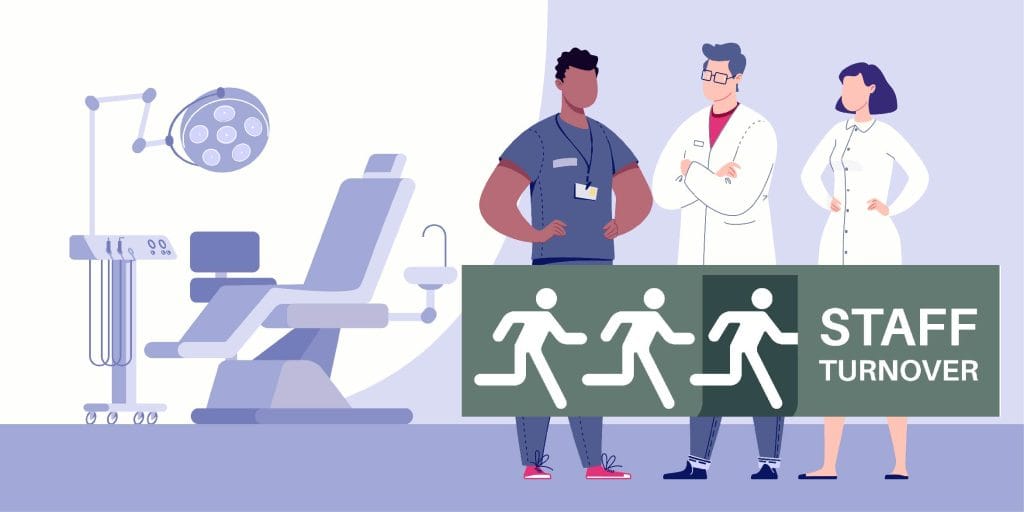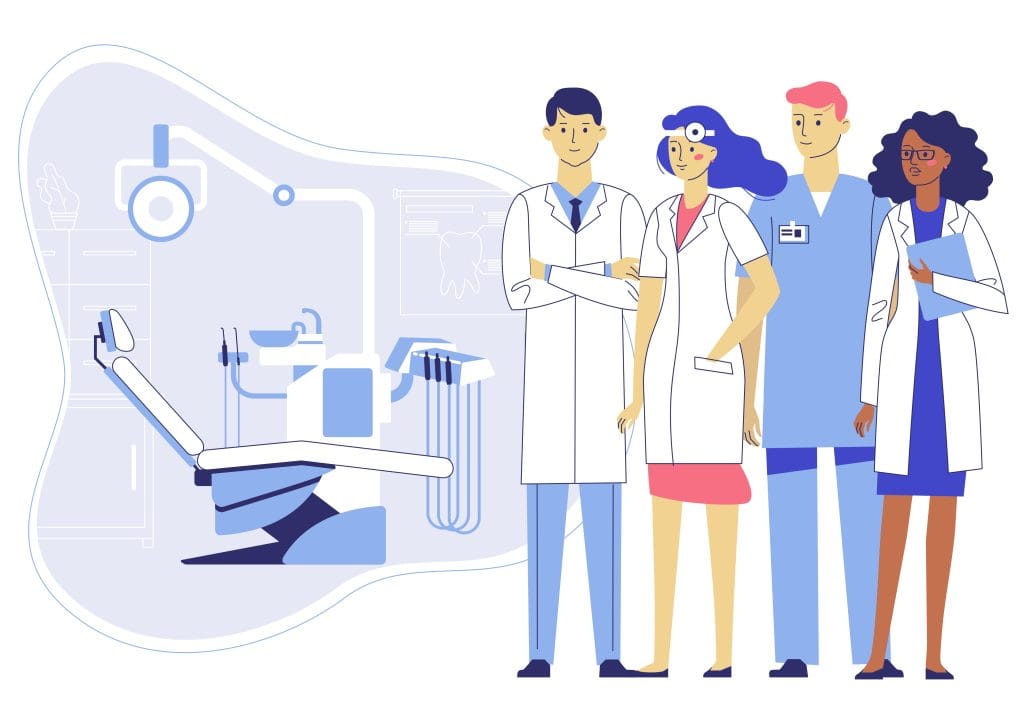 You hire new staff and they seem to be doing okay…and then they don’t do so well, so you let them go, and then you repeat the cycle.
You hire new staff and they seem to be doing okay…and then they don’t do so well, so you let them go, and then you repeat the cycle.
Or you hire new staff and they seem to be doing well… then they give you their two weeks’ notice, and you repeat the cycle.
High turnover is more common these days, but that doesn’t mean it has to be common for you.
In fact, it’s not difficult to prevent this. It just takes some intentional changes to see a difference in your staff and ultimately creating a team that’s reliable.
With that said, let’s get into it!
1. Look at their track record during the hiring process
We have a ton of articles with tips on how to find and hire new staff, including:
- How to Hire and Keep Great Dental Staff
- Finding and Keeping Great Team Members for Your Dental Practice
- How to Hire Great Dental Staff in Today’s Market
So, I won’t go over all of that right now. But, one thing I wanted to share is that while you’re interviewing candidates, make sure you’re looking at their track record rather than just their personality.
And by “track record,” I don’t just mean “dental experience.” I’m talking about the ability to be productive and get results on their job, whatever that job was.
Obviously, you want a new hire who is upbeat and friendly, but you also want them to get results. The best way to determine their ability to get results in your practice is to review their resume and see what results/accomplishments they were able to get at previous jobs. And by the way, this doesn’t have to only be dental-related. Results in any industry will prove to you that they’re competent and can get the job done.
Additionally, during the interview process, you can ask them specific questions to see if they’re results-oriented. Questions like, “How do you put a plan into action?” or “What was one of your accomplishments at your previous job?” are good ways to screen for this. Were they just “doing their job” or were they working towards and achieving targets?
Doing this will be a good start, but what’s next is vital.
2. Taking the time to properly train them
 You can hire the best and most competent person on the planet, but if you don’t train them, they won’t get very far. Not because they can’t learn how to do it, but because they won’t know how you want them to do it.
You can hire the best and most competent person on the planet, but if you don’t train them, they won’t get very far. Not because they can’t learn how to do it, but because they won’t know how you want them to do it.
It’s important that you or the office manager set aside adequate time to properly train your new hires. So, for example, you wouldn’t want to try to train your new hires when it’s a very busy day in the office (unless you have an office manager who can devote time to them). You and your new hire would be better off if they at least began their training on a slower day when you aren’t being pulled away every 10 minutes.
A great example for a new hygienist would be to have them clean staff’s teeth in the evenings. This gives you a great idea of how they already work and if they need to improve anything. Plus, it allows staff to get to know the new hygienist and really see just how good they are.
3. Have a plan for their training
Along with setting aside enough time to train your staff, you want to create a plan regarding their training. If they catch onto things really fast, what’s next? If they’re slowing down at a certain point, what do you do?
You should have a plan of what their training program will look like, how they can progress on it, and what indicates they’ve completed their training.
As a helpful addition to this, 500 dental offices use our online training platform, DDS Success, to train their new hires and existing staff. With online video training courses for every position in the practice, the sequence of training is mostly done for you. All you’d need to do is have them practice what they’ve learned to ensure they truly understand and can apply the information. You can schedule a free demo here.
4. Create a great working environment
 Last, but not least, is having a working environment that makes new hires want to stay.
Last, but not least, is having a working environment that makes new hires want to stay.
Whatever the reasons, something has shifted in the last two years and many people simply are not willing to put up with an unpleasant work experience anymore. They’ll go look for a different job—and lots of companies are hiring right now.
The attitude of the other staff plays a big role in this as well. If a new hire doesn’t feel comfortable in your office or gets unfair treatment from another staff member, they’re not going to stay.
Some ways you can create a good working environment include:
- Doctor and staff having a good attitude
- Sharing the goals of the practice
- Sharing the purpose of the practice and each job position
- Creating a bonus structure
- Allowing feedback from staff
- Having a good organizational structure and clearly defined roles, so there is no conflict or unnecessary stress
- Etc.
Another aspect to this is providing opportunities for upward movement within the practice, so employees can make it a career and increase their salary. If the practice has plateaued and there’s no way to be promoted to a higher position, then most front office jobs will always be temporary. So if you want to keep staff long-term and build a strong core team, your practice needs to be growing steadily. If it isn’t, request a free consultation here and we’ll help you find out why.
Summary
While high turnover is certainly a thing for many dental offices, there is something you can do about it. You can have a great dental team who are happy to be working at your office and I hope these tips can help you do just that.
If you want one-on-one help with this, you can request a free practice analysis here. Or you can call us at (800) 640-1140.



No Comments
Be the first to start a conversation